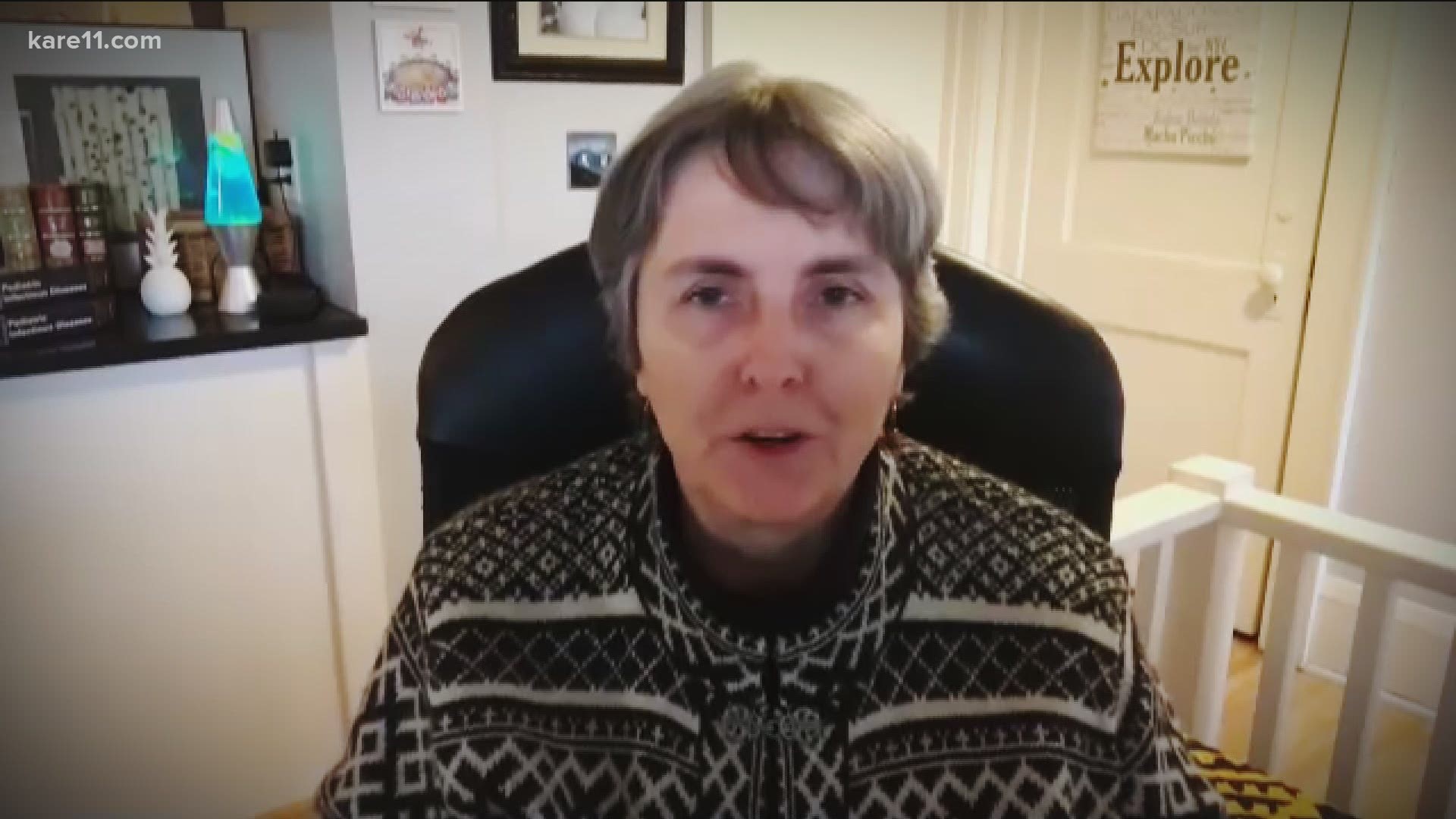MINNEAPOLIS — Almost 95,000 doses of the new Moderna vaccine are on their way to Minnesota, the second vaccine in the arsenal to fight the spread of COVID-19.
As the vaccines roll out in record time, Dr. Jill Foster, an infectious disease doctor and professor with the University of Minnesota Medical School and M Health Fairview, has been responding to many patient questions about the differences between the Pfizer and Moderna vaccines.
“We are in a place where we can see the beginning of the end. I am incredibly optimistic,” said Dr. Foster.
She’s addressed the top questions surfacing as the second Moderna vaccine makes its way to all 50 states, with nearly 6 million doses delivered to the nation’s COVID-19 hotspots.
- Who is getting the vaccine? What is the target population?
The Pfizer vaccine is approved for people ages 16 years and older and the Moderna vaccine is approved 18 and older The CDC still is prioritizing the vaccines for health care workers and those who live in longer-term care facilities.
- What is the main difference between the Moderna and Pfizer vaccines?
Dr. Foster said the main difference is how the vaccines are stored, with the Moderna vaccine announcing a longer shelf life with refrigeration.
“The Moderna vaccine is good in a refrigerator for a month, almost a month, whereas the Pfizer vaccine is good in refrigerator only for five days,” she said. “My sense is that the Moderna vaccine is going to go places where that refrigeration makes a big makes a big difference.”
This could be in places like smaller hospitals or rural areas with less refrigeration storage at health care facilities.
- What is the Moderna vaccine dosage? How many shots?
Both the Moderna and Pfizer vaccine require two doses. The two Pfizer doses are separated by three weeks, and the Moderna doses are separated by four weeks.
“Really kind of a small distinction. The vaccines are very similar to each other,” said Dr. Foster.
- Do you have to isolate after you get it?
“Yes,” Dr. Foster said. “You definitely should act as if nothing has changed until you get the second vaccine. Even with the second vaccine is going to be a couple of weeks before the peak immunity really kicks in.”
She cites the estimated the 94%-95% efficacy rates barely differ between both the Pfizer and Moderna vaccines, with both vaccines hovering around a similar level of effectiveness.
- Can a vaccinated person still get COVID-19?
Dr. Foster says it’s possible to get COVID-19 if you are in the 5% of people who do not respond or receive immunity from the vaccine’s 95% efficacy rate.
“The vaccine seems to be really effective at presenting preventing people from getting serious, getting hospitalized with COVID. So again, we'll know more when we have a lot more people immunized. But it appears that at best, you won't get it at all, or that you'll at least get a less severe case,” said Dr. Foster.
- Does it work against the new UK strain?
Too early to tell, said Dr. Foster, speaking of the new mutated virus circulating in the United Kingdom.
“This is something that people should not spend a lot of time worrying about right now but should spend time paying attention to as new things come out from the health department,” she said.
- How do they have so many produced already, if it was just approved by the FDA?
“That's a really good question to ask,” said Dr. Foster. “So, part of it is, is this that these no vaccines have been developed for a long time, and we're just kind of waiting for a pathogen to be put into it. Almost a year ago, in January, we found a genetic structure of it. And so, they had these vaccines sort of ready to go. The second part really, is that a lot of red tape has been cleared away.”
- What are the potential side effects?
The FDA cites some temporary Moderna side effects with pain at the injection site, fatigue, fever, muscle pain, joint pain, aches and chills.
With the Pfizer vaccine, Dr. Foster cites two cases of anaphylaxis reported as a reaction.
“We're really watching to see what happens with those and whether how often they're actually going to happen. With Moderna, it hasn't been out long enough to know if there's going to be something like that there's kind of an unexpected thing happening,” said Dr. Foster.

